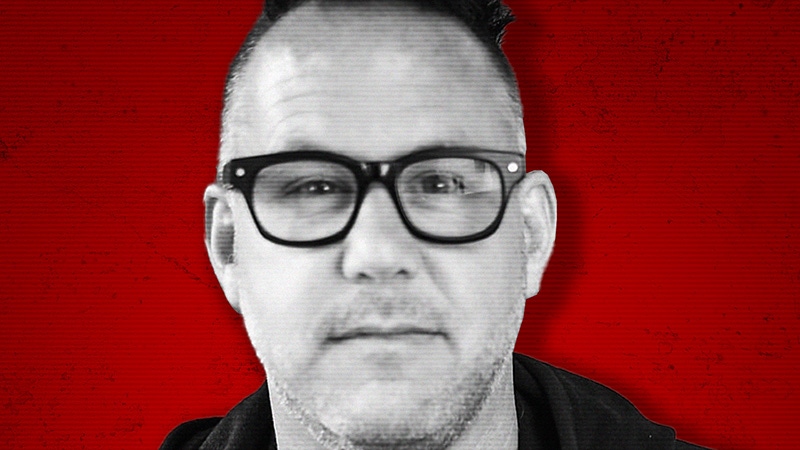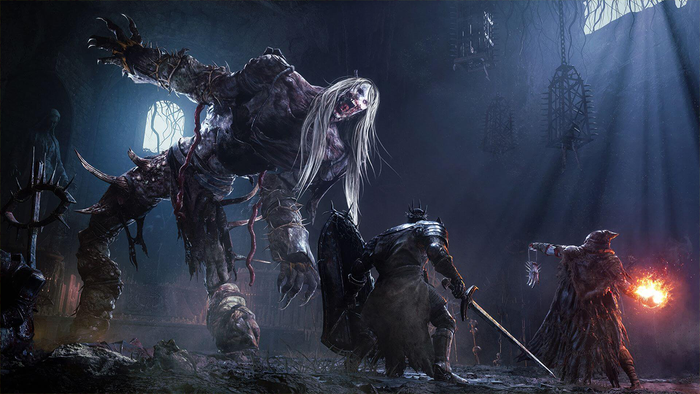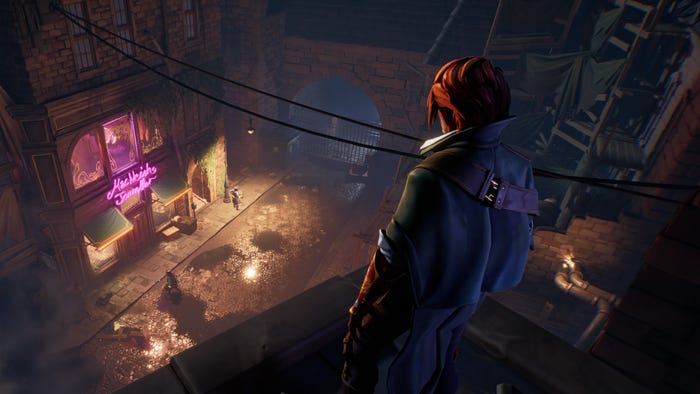Rogue Games CEO Matt Casamassina (one of IGN's founding editors) discusses the necessity of a four-day work week at his company.

The Last Case of Benedict Fox and Sociable Soccer publisher Rogue Games is moving to a four-day workweek. Starting this month, employees at the Los Angeles-based company will have Fridays off, with no extra hours added to other days.
It's another example of video game companies adapting to changing demands of its workforce in the wake of the COVID-19 pandemic. The largest company to implement such a policy has been Eidos, but Kitfox Games, Game Freak, and other notable developers have taken similar steps.
All of these companies approached the decision with different (but parallel) goals in mind, and Rogue Games is no different. CEO Matt Casamassina shared some of those goals in an e-mail conversation with Game Developer.
What's notable about Casmassina's background is that he was one of the founding editors at news juggernaut IGN. He cut his teeth in the game industry during a time where long hours and sleepless nights were bragging bona fides in games media and at game developers.
Despite his roots, he's still supportive of this change.
An end to hustle culture
According to Casmassina, many of the early products he built were "the direct result of working well beyond the 9-5 schedule." He described leaving before midnight at IGN was an "abnormal" occurrence, and that the company found particular excess when editors burned the midnight oil to write up Japanese-sourced news as soon as it landed.
He said he doesn't have any regrets about that time, but he's not sure he'll be reminiscing on Capcom announcement writeups when he's lying on his deathbed. In the years since, he said that he's personally tried to work "smarter, not necessarily harder."
"You can integrate best practices, process efficiencies, and perhaps most important of all, trust your colleagues to handle their responsibilities," he explained. "When all of those things are firing like they should, you won’t need to stay at the office until midnight to do kick-ass work."
Casmassina characterized the four-day work week shift as being an extension of how workers are re-prioritizing work in their lives. In his view, employees aren't as interested in climbing the company ladder or "becoming the next millionaire." He said that workers are seeking "balance," a life where they enjoy what they do but they aren't necessarily dominated by it.
He still said that the workforce wants to do good work, but the prioritization of hard boundaries in people's schedules means they'd rather finish work and go hiking than grind away all weekend on a special project.
There is of course, the COVID-19 pandemic's impact on Rogue Games and other developers. "Two years spent in pajamas from the waist down proved that remote work didn’t break the world," he quipped.
It's tempting to just fixate on the extra Friday that workers will have off, but Casmassina is also looking to the Monday afterward. He thinks that his employees will come back "more refreshed" than they do from a two-day weekend. If his plans work out, not only will there be "no material impact" on Rogue Games, but productivity might be better than ever.
The old guard embracing new ways
Casmassina isn't the only game industry veteran to wax nostalgic about the crunch-laden grind of the '90s and 2000s. You even still have industry executives who praise the passion of their employees while talking about 60-hour work weeks, even as the industry generally finds itself irritated with the proliferation of crunch culture.
The Rogue Games CEO's vision cuts away from the "I worked like hell when I was getting started and so should you" attitude that other old industry hands still profess. Just because someone worked long hours in their early career doesn't mean they have to wish the same on other workers.
But there still is something to be critical about in how companies shift their models of work. Several companies embracing the four-day work week built mountains of profit off the backs of exploited workers. A history of missed birthdays, chronic pain, and burned-out developers don't go away just because a company changes its tune.
It also won't solve any problems to implement four-day work weeks while creating inequity among workers. Casmassina said he was very proactive on this. In the early stages of planning the schedule shift, he realized it was very important that Rogue Games pick one extra weekend day for the entire company.
He argued that splitting the company into "crews," with one group taking Friday off and the other taking Monday off, would be inequitable.
Whatever your company tries to implement, Casmassina said you should actively try to buck the old ways of working. He recalled working at a corporate job just a few years ago where he longed for the ability to work from home one day a week. Back then, that single day would have been a "career-limiting move."
Now worker demands are changing how he and other company leaders think. "If we keep doing the same old shit, it’s never going to change, and the workforce is screaming for change," he said. "Ignore those voices at your own peril."
Read more about:
FeaturesAbout the Author(s)
You May Also Like







